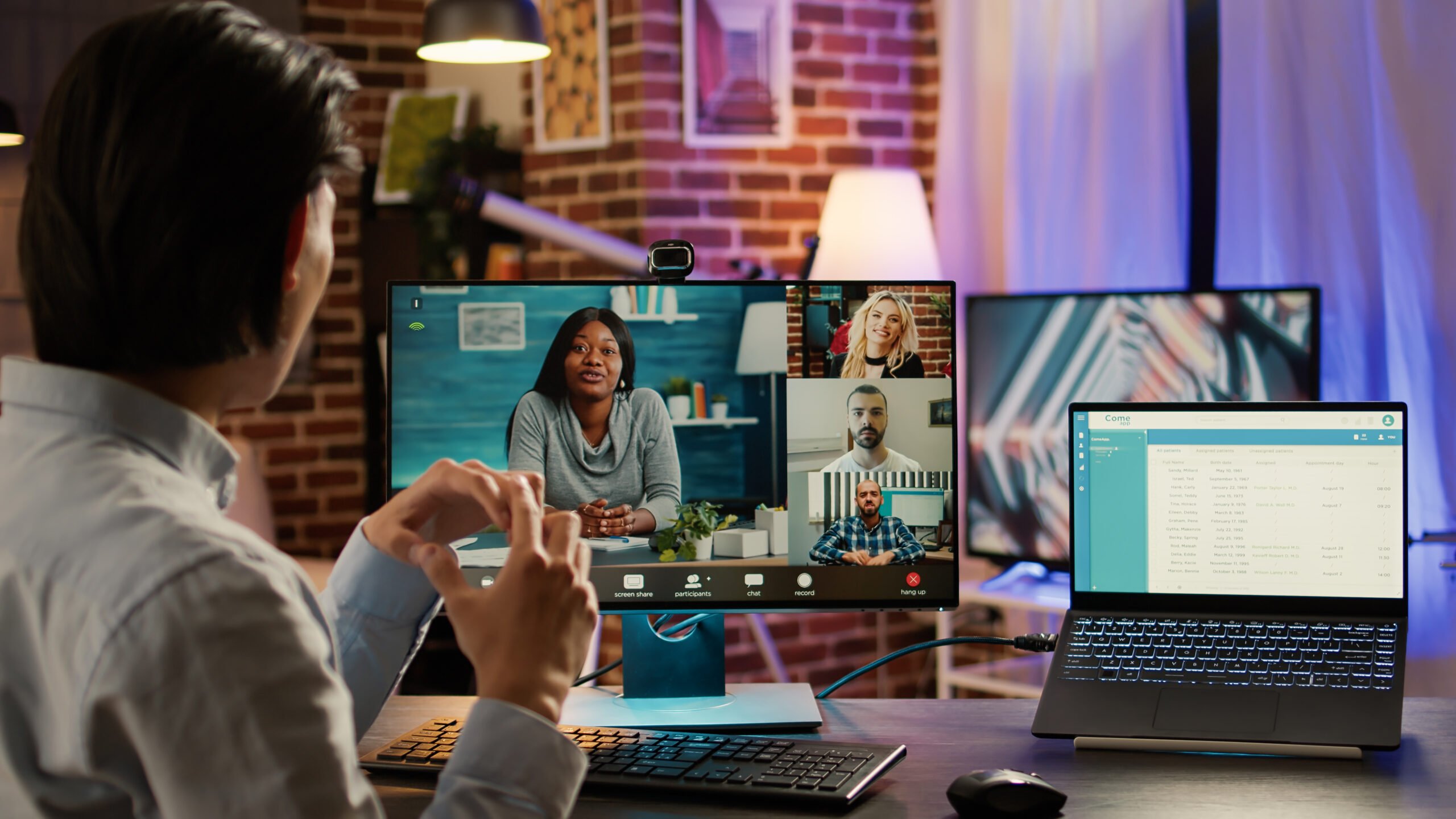Editor’s Note: While Omaha Computing Solutions can help setting up all of the mentioned items below, some of these we don’t do by default because they are the user preference. Note that when setting up BitLocker, you need the TPM (Trusted Platform Module) active in BIOs.
In today’s digital age, securing your computer is more crucial than ever, especially when using popular operating systems like Windows 11. Omaha Computing Solutions presents a comprehensive guide to bolster your cybersecurity. These 10 essential steps will help you safeguard your system against various threats and ensure your data remains protected.
Key Takeaways
- Regularly update Windows to patch vulnerabilities and improve security features.
- Use reliable antivirus software to detect and eliminate malware.
- Configure your firewall to control incoming and outgoing network traffic.
- Enable User Account Control to prevent unauthorized changes to your system.
- Encrypt sensitive data with BitLocker and use Secure Boot to protect against unauthorized access.
1. Windows Update

Keeping your Windows 11 system up to date is crucial for security. At Omaha Computing Solutions, we know that whether you’re using brand new hardware or refurbished computers, staying on top of updates can shield you from vulnerabilities and exploits.
- Regularly check for updates
- Install updates as soon as they’re available
- Restart your computer if prompted
Updates not only patch security holes but also enhance performance, which is essential even for refurbished desktop computers. It’s a simple yet effective step towards a more secure computing experience.
By maintaining the latest updates, you ensure that your system has the newest security features and fixes, keeping your data and privacy intact.
2. Antivirus Software

Keeping your Windows 11 machine secure means having robust antivirus software in place. It’s our first line of defense against a myriad of threats that can compromise not just the operating system, but also peripheral devices like computer printers and computer monitors.
Antivirus programs are not just for warding off viruses; they also play a crucial role in protecting against malware that could affect your computer mouse or even the performance of gaming computers. Here’s a quick rundown of why antivirus is essential:
- It scans for and removes viruses and malware.
- It provides real-time protection against new threats.
- It helps protect your personal information from being compromised.
Ensuring your antivirus is always up-to-date is as important as the software itself. Outdated antivirus might not recognize new threats, leaving your system vulnerable.
Remember, while Windows 11 comes with built-in security features, additional antivirus software adds another layer of protection that can save you from a lot of headaches down the road.
3. Firewall Configuration

Configuring your firewall is like setting up a security guard for your computer’s network traffic. It’s a critical step in safeguarding your system against unauthorized access and potential threats. Windows 11 comes with a built-in firewall that’s designed to protect your computer by monitoring incoming and outgoing network traffic and blocking suspicious activities.
To get started, you’ll want to check the status of your firewall and make any necessary adjustments. Here’s how we do it:
- Navigate to Settings > Privacy & security.
- Select Windows Security at the top of the menu.
- Click on Firewall & network protection to view your firewall status and configure settings.
It’s essential to ensure that your firewall is always turned on and properly configured to match your security needs. Regularly review your firewall settings to keep up with any changes in your network environment or security requirements.
Remember, while the default settings are a good starting point, you might need to tweak them depending on the software you use and your specific security concerns. If you’re unsure about making changes, it’s always a good idea to seek professional advice.
4. User Account Control

User Account Control (UAC) is our trusty gatekeeper, folks. It pops up those prompts when a program tries to make a change that requires admin-level permission. It’s like a bouncer for your system settings, ensuring that only the changes you approve get through.
- Always keep UAC enabled to prevent unauthorized changes.
- Set the notification level to ‘Always notify’ for maximum security.
- Don’t ignore UAC prompts—take a moment to consider if you initiated the action.
By staying vigilant with UAC prompts, we’re adding an extra layer of defense against potential security breaches. It’s a simple step, but it goes a long way in keeping our Windows 11 machines secure.
5. BitLocker Drive Encryption

At Omaha Computing Solutions, we can’t stress enough the importance of securing your data. BitLocker Drive Encryption is a built-in feature in Windows 11 that provides an extra layer of security. It works by encrypting the entire drive, making it inaccessible to unauthorized users.
To get started with BitLocker, follow these simple steps:
- Access the BitLocker settings from the Control Panel.
- Choose the drive you want to encrypt.
- Follow the wizard to initialize the encryption process.
- Save your recovery key in a secure location.
It’s crucial to save your recovery key separately from your computer. If you ever forget your password or if your Windows installation becomes corrupt, you’ll need this key to access your encrypted data.
Remember, encryption is only as strong as your password. Make sure to use a complex passphrase and consider combining BitLocker with a TPM (Trusted Platform Module) for enhanced security. If you need assistance setting up BitLocker or have any concerns about data security, don’t hesitate to reach out to us at Omaha Computing Solutions.
6. Secure Boot

When it comes to keeping your computer secure, especially if you’re using refurbished laptops, enabling Secure Boot is a must. This feature, built into the UEFI firmware of your Windows 11 device, ensures that only trusted software can boot up on your system. It’s a powerful shield against rootkits and other boot-time malware that could compromise your device before the OS even starts.
To enable Secure Boot, you’ll typically need to access your computer’s BIOS or UEFI settings. Here’s a quick rundown of the steps:
- Restart your computer and enter the BIOS/UEFI settings. This is usually done by pressing a key like F2, F12, Del, or Esc immediately after powering on.
- Look for a ‘Boot’ or ‘Security’ tab within the settings.
- Find the ‘Secure Boot’ option and enable it.
- Save your changes and exit the BIOS/UEFI.
It’s important to note that if you’re planning to install Windows 11 from external media, such as a USB flash drive, Secure Boot might need to be temporarily disabled. However, once the installation is complete, make sure to re-enable it to maintain the security integrity of your system.
7. Windows Hello

At Omaha Computing Solutions, we’re big fans of making security as seamless as possible. That’s why we love Windows Hello. It’s a more personal, more secure way to get instant access to your Windows 11 devices using facial recognition or a fingerprint. No more struggling to remember complex passwords; just a quick scan and you’re in.
- Set up a PIN as a backup option.
- Register your face or fingerprint.
- Always keep your device’s camera and sensors clean.
With Windows Hello, you can rest assured that your device is accessible only to you, making it a formidable tool against unauthorized access. It’s a perfect fit for us who use computers in Omaha, where we value both convenience and security.
Remember to regularly check for updates to Windows Hello, ensuring you have the latest security enhancements and features. It’s just one of the many ways we can keep our devices secure and our data protected.
8. VPN Services

When we’re talking about keeping your digital life secure, we can’t overlook the importance of VPN services. Using a VPN is like having a private tunnel for your internet traffic, shielding your online activities from prying eyes on public networks.
Here’s why you should consider a VPN:
- It encrypts your internet connection to provide better security.
- A VPN can hide your IP address, making it harder for advertisers and hackers to track you.
- It allows you to access region-restricted content, which can be a lifesaver when traveling.
While a VPN adds an extra layer of security, it’s not a silver bullet. It’s one part of a comprehensive security strategy that includes regular updates, strong passwords, and vigilant internet habits.
Remember, not all VPN services are created equal. It’s crucial to choose one that respects your privacy and doesn’t log your activities. At Omaha Computing Solutions, we’re all about making sure you have the tools and knowledge to stay safe online. If you need help setting up a VPN or have any questions about online security, don’t hesitate to reach out.
9. Password Manager

We’ve all been there—juggling dozens of passwords, trying to remember which one goes where. It’s not just frustrating; it’s a security risk. That’s where a good password manager comes in handy. It’s a secure vault for all your passwords, ensuring that each account has a unique, strong password without the headache of remembering them all.
- Use a password manager to generate and store complex passwords.
- Ensure it integrates well with Windows 11 for seamless operation.
- Regularly update the password manager to benefit from the latest security features.
A password manager doesn’t just store your passwords; it’s your first line of defense against password-related breaches. Make it a cornerstone of your security strategy.
Remember, the goal is to make your digital life both easier and safer. A password manager strikes that balance, allowing you to maintain strong security protocols without the daily struggle of password fatigue. Let’s make security a convenience, not a chore.
10. Backup Solutions

At Omaha Computing Solutions, we can’t stress enough the importance of regular backups. Your data is invaluable, and losing it can be a nightmare. That’s why we’ve got your back with a range of backup solutions tailored for Omaha used desktops, and used laptops.
- Always use reliable backup software.
- Schedule regular backups, whether daily, weekly, or monthly.
- Keep multiple backups in different locations.
Ensuring your data is backed up is like having an insurance policy for your digital life. It’s a safety net that we at Omaha used laptops and computing services take seriously.
Remember, it’s not just about having a backup; it’s about having a functional backup that you can restore from. Test your backups periodically to make sure they’re in good working order. If you’re unsure about how to set up a backup system, come talk to us. We’re here to help you keep your data safe and secure.
Ensuring the safety of your digital assets is crucial, and our ’10. Backup Solutions’ article provides valuable insights into securing your data. Don’t let unforeseen events compromise your information. Visit our website for comprehensive backup strategies that cater to your needs. Take the first step towards data security by exploring our expert recommendations and services.
Wrapping It Up
We hope this guide has empowered you with the knowledge to fortify your Windows 11 experience against potential threats. Remember, maintaining computer security is an ongoing process that requires vigilance and regular updates. By implementing these 10 essential steps, you’re not just protecting your computer; you’re safeguarding your personal information and peace of mind. Stay curious, stay updated, and don’t hesitate to reach out to Omaha Computing Solutions for any further guidance. Happy computing, and stay secure!
Frequently Asked Questions
How often should I update Windows 11 to stay secure?
It’s recommended to set your Windows Update to automatic so that you receive updates as soon as they are released by Microsoft. This ensures your system has the latest security patches and improvements.
Is the built-in Windows Defender sufficient as antivirus software?
For most users, Windows Defender offers adequate protection. However, for enhanced security or specific use cases, you may consider additional antivirus software from reputable vendors.
How can I configure my firewall on Windows 11?
You can configure your firewall settings by going to the Control Panel, selecting ‘System and Security’, and then ‘Windows Defender Firewall’. From there, you can adjust settings, set rules for apps, or turn the firewall on or off.
What is User Account Control and why is it important?
User Account Control (UAC) is a security feature that helps prevent unauthorized changes to your system by prompting for administrator-level permission. Keeping UAC enabled can protect your system from malicious software and unauthorized changes.
Do I need to use BitLocker if my computer is for personal use?
BitLocker is recommended for all users to protect sensitive data. It encrypts your drive, making it difficult for unauthorized persons to access your data if your computer is lost or stolen.
How do I set up a backup solution on Windows 11?
You can set up a backup by going to the ‘Settings’ menu, clicking on ‘Update & Security’, and then ‘Backup’. From there, you can choose to backup using Windows File History or a system image, and select your backup destination.








